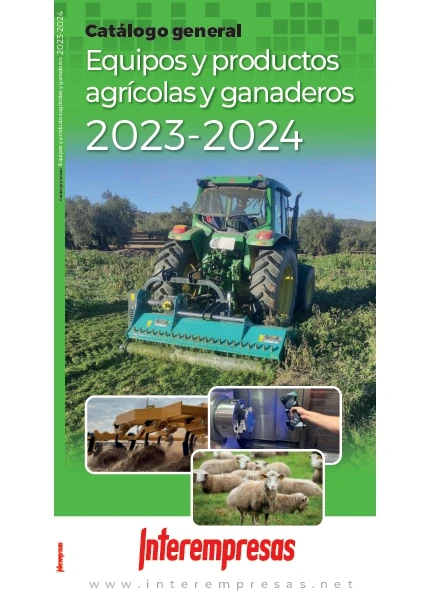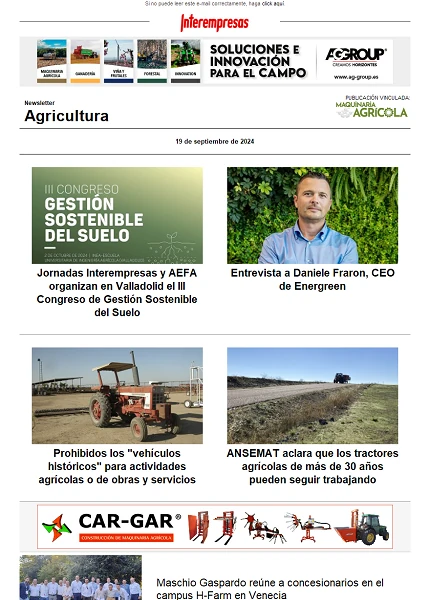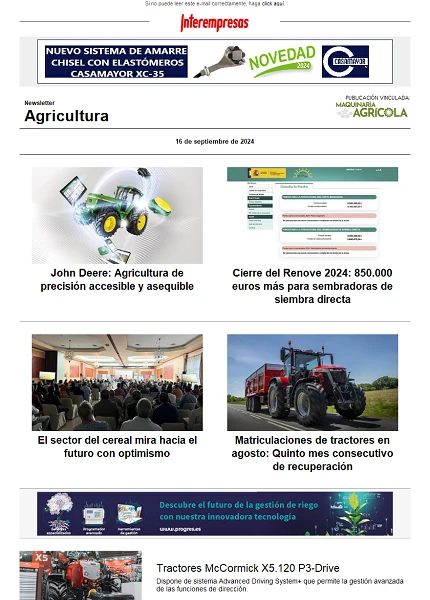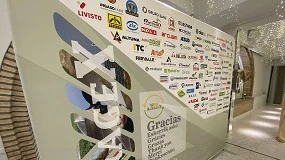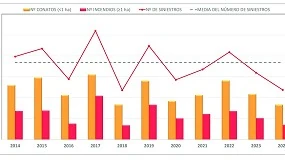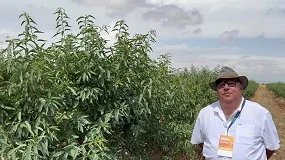Energy audits in communities irrigators
Energy efficiency in irrigation
M. Carmen Rocamora Osorio, Ricardo Abbey Sánchez, José María camera Zapata, Amparo Melián Navarro, Herminia Puerto Molina and Antonio Ruiz Canales. rocamora@UMH.es research group, water and energy for a sustainable agriculture. Escuela Politécnica Superior de Orihuela, Universidad Miguel Hernández
23/12/2010The growing concern over the increase in energy consumption, cause direct of the increase in greenhouse gas emissions, as well as the high energy dependence of Spain, close to 80%, lead to all productive sectors to improve energy efficiency in all sectors of production.
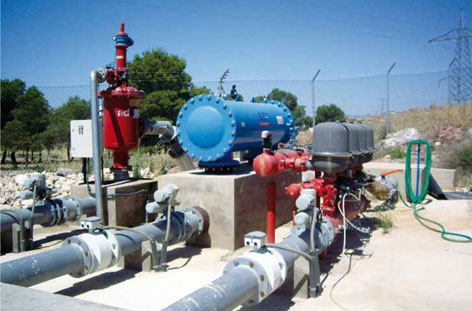
In recent years the research group 'Water and energy for a sustainable agriculture', of the Miguel Hernández University of Elche, has carried out several research projects with public funding aimed at the analysis of efficiency in the use of water and energy resources in communities irrigators. Thus, in the project 'Efficient use of water and energy in irrigation systems located in the regions of the South of Alicante (2005-2006)', was characterized the Organization and functioning of some communities of irrigators representing the regions of the South of Alicante, and assessed the real efficiency of the use of water through follow-up of consumption in plots of farmers with localised irrigation and study of the room for improvement in the use of the water using methods of irrigation scheduling.
The project 'Evaluation of the efficiency of energy use in communities of irrigators in the regions of the South of Alicante' identified indicators of energy management and efficiency in several communities of irrigation pumping stations it was determinedobtaining the values of the defined indicators of energy use.
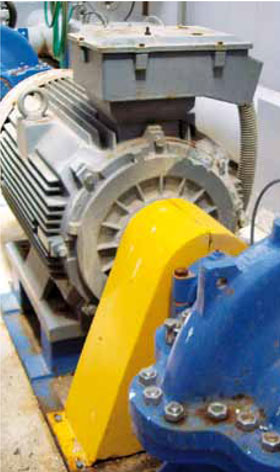
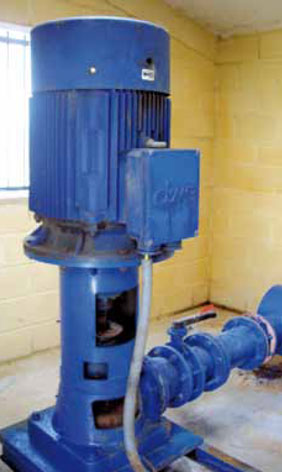
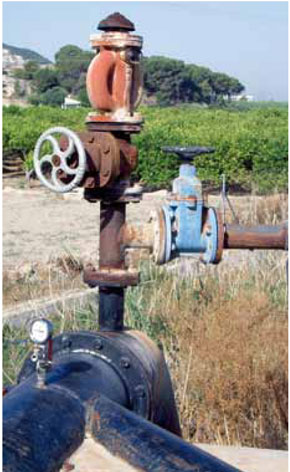

Table 1: indicators of energy use.
EA: annual energy consumption active. EAA: energy consumption per unit of irrigated area. EAV: energy consumption by volume of water supplied to the irrigators. CEA: energy cost per unit of irrigated area. CEV: energy cost per volume of water supplied to the irrigators. GE: percentage of energy expenditure on the total costs.
The research group has developed a methodology of calculation of energy efficiency in irrigation pressure networks. General energy efficiency depends primarily on the efficiency of the groups of pumping and the efficiency of energy supply, i.e. the more or less use of energy supplied by the groups of pumping by the irrigation network. The methodology behind energy audit for communities of irrigators Protocol, drawn up by the AEAS Group commissioned by the Institute for diversification and saving of energy (IDEA), which released it in 2008.
The performance of energy audits in communities of irrigators is one of the main actions envisaged in the Action Plan 2008-2012 of the strategy of saving and energy efficiency in Spain. Audits are intended to evaluate and improve energy efficiency in communities of irrigators. They consist of a detailed analysis of energy consumption, for which determines the efficiency of pumping groups and the efficiency of energy supply, obtained values of predetermined indicators of energy use and examines the factors that increase the energy consumption or that are the cause of low efficiency. This analysis allows to propose measures to improve energy efficiency. All audit concludes with the proposal of measures for energy saving and economic valuation.
The energy of the autonomous agencies are the agencies responsible for administering public subsidies for carrying out energy audits and the implementation of improvement projects arising from audits. After the publication of the Protocol on energy audit for communities of irrigators, the AEAS group has carried out several audits in communities of irrigators in the province of Alicante, by agreement with the Valencian Agency of energy.
Table 1 shows the values of the most representative indicators obtained from audited irrigators communities. Table 2 shows values of the overall energy efficiency of the communities of irrigators, as well as the values of its two components: the efficiency of pumping groups and the efficiency of energy supply.
| Denomination | BSE % | THE % | EEG % |
| C. RR. 1 | 54,39 | 0.00 | 0.00 |
| C. RR. 2 | 45,42 | 22,46 | 10.20 |
| C. RR. 3 | 47,19 | 47,40 | 22,35 |
| C. RR.4 | 53,86 | 55,02 | 29,63 |
| C. RR. 5 | 55,82 | 49,24 | 27,49 |
| Denomination | Energy consumption (kWh) | Energy cost (EUR) | Energy saving (%) | Economic savings |
| C. RR.1 | 1.116.684 | 93.877 | 11,72 % | 39,97 % |
| C. RR.2 | 1.399.686 | 152.976 | 24,74 % | 23.20 % |
| C. RR. 3 | 2.169.112 | 269.577 | 19,63 % | 18,93 % |
| C. RR.4 | 1.062.334 | 124.666 | 15.25 % | 10.71 % |
| C. RR. 5 | 1.818.069 | 188.441 | 11.95 % | 9.45 % |
| 8.015.885 | 829.537 |
Once analyzed the efficiency of the equipment and the irrigation network, and studied the critical points of energy consumption, proposes a series of measures to improve efficiency and reduce energy consumption.
Energy saving measures can be designed to improve energy efficiency in pumping equipment either to improve the efficiency of the distribution network. Latter are mainly related to the management and maintenance of facilities.
Some of the measures proposed are:
- Replacement of pump, motor, or group.
- Cleaning and tuning of engines, pumps, and polls.
- Change in the regime of operation of desalination plants.
- Reentubado wells.
- Installing variable speed for the drive of pumps.
- Classification of the network.
- Construction of raft of brine.
- Posting of consumption at times of lower prices for energy.
- Reduction of the contracted power.
These latest measures involve a reduction in the cost of energy, but not in energy consumption. Potential energy savings identified in the audits (table 3) varies between 11 and 24% of annual consumption. The cost savings provided through the implementation of the proposed corrective measures varies between 9 and 39 per cent of the annual cost of energy.
The potential energy savings upon implementation of the measures of improving efficiency in the five communities of irrigators considered amounts to 1.370.555 kWh, i.e. 118 pet. This reduction in energy consumption means a reduction in the emission of 534,5 tonnes of CO2 into the atmosphere.
Once analyzed the efficiency of the equipment and the irrigation network, and studied the critical points of energy consumption, proposes a series of measures to improve efficiency and reduce energy consumption
The cost savings expected for the whole of the five communities of irrigators derived energy savings and improvements in the management of energy amounted to 155.203 euros. Most of the energy-saving measures proposed in the audits do not require large investments, so that the period of return is fairly small: does not reach a year in some cases, being the maximum of 3 years.
The energy audits in CCRR require an in-depth study of all the elements of the network of irrigation involved in energy consumption. This analysis highlights the critical points of energy consumption and give rise to energy saving measures that lead to significant economic savings. We can therefore say that energy audits are an effective tool to increase energy efficiency in irrigated agriculture.



